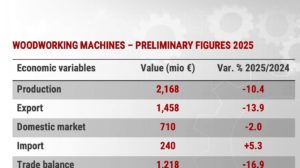In 2021, Alser Forest, a company with a significant presence in Romania's forestry industry, caught the attention of investors by issuing EUR 1.5 million worth of bonds on the AeRO market of the Bucharest Stock Exchange. This financial move, designed to support the company's development, was initially viewed with optimism. Recently, however, the economic press has raised a number of questions and accusations about the company's financial management and its compliance with its commitments to investors.
To better understand the context, it is important to give a brief history of events:
- April 2021: Alser Forest launches a €1.5 million bond issue with an interest rate of 8% per annum and a maturity in April 2024.
- June 2021: The bonds are listed on the AeRO market of the Bucharest Stock Exchange.
- 2021-2023: The Company makes semi-annual interest coupon payments as scheduled.
- December 2023: First signs of financial distress emerge, with reports of major asset sales.
- April 18, 2024: Alser Forest announces that it will not be able to pay the final interest coupon or repay the principal at maturity.
- April 22, 2024: A group of 45 bondholders files a complaint with the Financial Supervisory Authority (ASF), requesting an emergency control of the company.
- April 25, 2024: The Court of Brasov admits the company's application for insolvency.
- May 14, 2024: The same group of creditors files a criminal complaint with the Public Prosecutor's Office of the Brasov District Court and the Directorate for the Investigation of Organized Crime and Terrorism (DIICOT), accusing Alser Forest management of crimes of deception, fraud and criminal group.
In this context, the main allegations and questions raised by the press include:
- Suspected transfer of the company's activity to newly established companies, allegedly to avoid debt payments.
- Allegations related to the sale of important company assets in December 2023, at a crucial time for Alser Forest's financial situation.
- Questions about dividend distributions in 2022 and 2023, apparently in contradiction to the commitments made in the bond listing memorandum.
- Controversy over a promissory note that was supposed to guarantee the bonds, but was apparently not endorsed as required by the memorandum.
- Concerns about the transparency of communication with investors, in particular regarding the deterioration of the company's financial situation.
These allegations have raised concerns among investors and raised questions about Alser Forest's financial management practices.
Against this turbulent backdrop, Wood Magazine has obtained an exclusive interview with Albert Șerban, CEO of Alser Forest, giving his first detailed reaction to the allegations in the Financial Newspaper and Bursa. This article aims to present a balanced picture of the situation, exploring both the allegations and the explanations offered by the company's management.
Section 1: Detailed overview of Alser Forest
Alser Forest has its roots in 2004, when engineer Albert Șerban founded Alser Forest Oy in Finland. The company then expanded into Romania in 2008, focusing on the distribution of modern forestry machinery and equipment. This strategic positioning has enabled Alser Forest to play a crucial role in modernizing the Romanian forestry sector.
To better understand the company's financial evolution, here is a table with Alser Forest's key financial data over the last 10 years:
| An | Turnover (RON) | Net Profit (RON) | Number Employees |
|---|---|---|---|
| 2014 | 4.012.778 | 79.769 | 5 |
| 2015 | 6.354.554 | 262.010 | 7 |
| 2016 | 7.978.496 | 208.979 | 10 |
| 2017 | 9.550.187 | 240.937 | 16 |
| 2018 | 11.653.041 | 325.133 | 18 |
| 2019 | 20.201.976 | 90.499 | 21 |
| 2020 | 14.923.280 | 960.190 | 20 |
| 2021 | 34.302.678 | 2.081.427 | 29 |
| 2022 | 34.742.081 | 1.880.355 | 34 |
| 2023 | 27.192.461 | -7.475.770 | 28 |
date source risco.ro
These figures show a steady increase until 2022, followed by a sharp decrease in 2023, which coincided with the period of turmoil in the forestry sector. Albert Șerban emphasizes, "The year 2023 was marked by a major crisis in the Romanian forestry sector."
The difficult economic context in 2023-2024 has significantly affected the timber industry and put pressure on the whole sector.
Section 2: Accusations against the company and Albert Șerban's replies
2.1 Transfer of activity to new firms
The accusation: The business press suggested that Alser Forest had transferred the activity to newly established companies to avoid paying debts.
Serban's response: 'Accusations that we have moved the activity to new companies do not reflect the reality of the situation. Alser Production had no financial relationship with Alser Forest. It is a totally separate company focused on the production side. As far as Alser Capital and Alser Power are concerned, the situation is actually the opposite of what is speculated. These firms actually helped Alser Forest to close the debts it had on credit lines and to urgent suppliers that were pressuring us.
There was a cash-flow crisis and we had to take measures to save as much of the business as we could. Much of the money went from these firms into Alser Forest, not the other way around. We will prove this with accounting documents, with contracts, to the institutions that are going to investigate. We are already in the process of presenting these documents.
It is important to understand that we have not acted with the intention to harm anyone. There were several factors that led to this situation, the most important being the crisis that hit the industry and dramatically affected our revenues."
Situation analysis: This allegation requires a thorough investigation of the financial flows between the companies mentioned. If Șerban's allegations are confirmed, it could indicate a crisis management strategy rather than an attempt to avoid obligations.
2.2 Sale of assets in December 2023
Charge: Alser Forest reportedly sold 14 cars, billboards and other assets in December 2023.
Serban's answer: "Yes, we sold 14 cars, but the context is important. These cars were leased and we were in a situation where we no longer had the funds to pay the installments. The monthly installments for these cars amounted to about 50,000 lei, a considerable amount for a company already in financial difficulties.
The decision to sell these assets was taken in order to reduce expenses and to raise the funds needed to pay off the banks that were pressuring us. It is important to note that we did not sell them "for a pittance". The total value of the sale was around 800,000 lei.
These decisions were not easy, but they were necessary to try to keep the company afloat in the difficult conditions we faced. You have to understand that we were put in an extremely difficult situation, with pressure from all sides, and we tried to make the best decisions we could under the circumstances."
Background: This decision appears to have been taken at a time of acute liquidity crunch, a common situation in times of economic downturn.
2.3 Award of dividends contrary to the memorandum
The allegation: the company would have distributed dividends in 2022 and 2023, contrary to commitments in the bond listing memorandum.
Șerban's answer: "Regarding the granting of dividends, I want to clarify that this was not an intentional breach of the terms of the memorandum. It is a complex situation which, unfortunately, I cannot fully detail at this time as it is part of ongoing investigations.
What I can say is that it was not a decision taken lightly or with the intention to prejudice anyone. There were factors and considerations that led to this situation, which I will explain in detail to the competent authorities. I do not want to divulge information that could influence the progress of the case, but I can assure you that we will cooperate fully with all the institutions involved to clarify the situation."
Discussion: Strict compliance with commitments to investors is crucial to maintaining confidence in the capital market. Any departure from these commitments, even unintentional, can have serious consequences.
2.4 The problem of the unadvailed promissory note
Presentation of the situation: the Memorandum mentioned an endorsed promissory note as collateral for the bonds, but it appears that this note was not actually endorsed.
Serban's reply: "The promissory note situation is indeed complex. I want to clarify the process as it happened. There is actually a mistake of the broker. Initially, he asked me for a plain, unadvised promissory note. I provided exactly what was asked for, as discussed. The problem arose later, when the listing was already in place and I noticed that the listing memorandum mentioned an endorsed promissory note.
I signed as the mayor, there were 100 pages in the memorandum, I looked at the part that interested me, the technical part, the legal part was done by Intercapital consultants. I think this discrepancy resulted from a drafting error in the document, possibly by copying standard clauses from other similar memoranda. I think they copy-pasted from another memorandum and left the endorsed note.
When the Intercapital representatives came in April 2024 to ask for the endorsement of the note, as written in the memorandum, I explained the situation and that we could not retroactively sign a document that would have fundamentally altered the nature of the original guarantee. Especially since that was our understanding. They asked me for an unendorsed note because, if they asked me for an endorsed note, it was normal that they should have checked it when they took it over.
I want to emphasize that there was no intention on my part to mislead or to refuse to fulfil the obligations undertaken. It was an unfortunate situation resulting from a series of misunderstandings and miscommunications."
In conclusion, Șerban added: "I fully understand investors' concern and frustration. Nobody wanted this situation. Alser Forest is a company that we have been building hard over the last 20 years. There was never any intention to bring it into this situation or to damage anyone.
It was the boom period of 2020 and the option of grant funding came up. We were highly leveraged. It's a risk with highly leveraged firms when that's what we in this industry do, we deliver orders and we wait for payment terms, we wait for customers to pay us. With a high degree of indebtedness, when the crisis comes, it catches you on the wrong foot and here somehow, here it caught me. In addition, at the end of last year, my credit lines were closed. And the banks wouldn't extend them. And that's when they caught me, all the cashflow I had to use to close the lines of credit.
There were a number of factors, including the crisis in the forestry sector, which contributed to this difficult situation. I assure you that we will cooperate fully with all authorities to clarify the situation and find the best way out of this crisis. I hope that everyone will be patient and wait for the results of the official investigations before throwing stones and drawing definitive conclusions."
Analysis: This situation highlights the importance of carefully checking all legal and financial documents prior to listing. The confusion in this case resulted in a significant discrepancy between investors' expectations and the reality of the guarantees offered.
Section 3: Lessons for companies raising bond finance
The Alser Forest case highlights some important lessons, which we will explain in detail so that even those less familiar with advanced financial concepts can understand them:
-
The importance of understanding risks:
Issuing bonds may seem like an attractive way for a company to raise finance, but it comes with significant risks. It's like taking out a large loan from several friends, promising to pay back the money plus interest at a fixed date in the future. But what if your business doesn't go as planned?
In cyclical industries such as timber, which are strongly influenced by economic fluctuations, the risks are even greater. It's like promising to return your money on a certain day, without knowing whether you will have good sales that day or not.
An important concept in managing these risks is that of provisions. Provisions are amounts of money a company sets aside to cover possible future expenses or losses. It is like putting money in a special "rainy day" jar.
Let's explain provisions with a simple example:
Imagine you have a wood-cutting machine that costs 100,000 lei and you know that every year you have to spend about 10,000 lei on its maintenance. Instead of waiting until the 10,000 lei bill arrives, you set aside about 833 lei (10,000 lei / 12 months) each month. This money set aside each month is a provision.
In the case of bonds, companies should create provisions to make sure they can pay interest and principal when due, even if the business has more difficult times.
Provisions serve multiple purposes:
- It helps manage financial risks by ensuring that funds are available for known or probable future obligations.
- It gives a more accurate picture of your company's true financial situation.
- It helps avoid the financial shocks that could occur if all expenses were recognized only when they arise.
Returning to the Alser Forest case, companies need to think carefully:
- What happens if the economy goes into recession?
- How will they cope if sales fall sharply?
- Have they created sufficient provisions to pay interest and bond principal even in difficult times?
- Do they have a clear strategy for long-term financial risk management?
Proper understanding and implementation of the concept of provisions can make the difference between a company surviving a crisis and one collapsing under the weight of its debts. For investors, checking a company's provisioning policy can provide valuable clues as to how well prepared it is for potential financial difficulties.
-
The need for transparency:
Transparency in business means being honest and open with everyone involved in your business, especially those who have lent you money (in this case, bondholders).
Imagine you have lent money to a friend to start a business. Would you feel more confident if this friend kept you regularly updated on how the business was going, even when things weren't going well? You probably would.
In the business world, this constant communication is crucial:
- Regular and honest reporting on the company's financial situation
- Inform investors promptly when problems arise
- Clear explanation of recovery plans in case of difficulties
Lack of transparency can lead to a loss of investor confidence, which can be fatal for a company, especially in times of crisis.
-
The role of financial education:
Financial education is like learning a new language - the language of money and business. Both entrepreneurs and investors need to "speak" this language fluently.
For entrepreneurs, this means:
- Understand in depth how bonds work
- Know the legal implications of issuing bonds
- Ability to interpret financial statements correctly and make realistic forecasts
For investors, financial education means:
- Understanding the risks associated with investing in corporate bonds
- Ability to read and interpret company financial reports
- Know their rights and responsibilities as bondholders
Good financial education can help avoid many problems and help both parties make more informed decisions.
-
Attention to detail:
In the world of business and finance, small details can have huge consequences. It's like building a house - one wrong brick can weaken the whole structure.
In the Alser Forest case, the endorsed promissory note confusion is a perfect example. It's like promising your friends that your father will guarantee the loan, but you never actually discussed it with him.
Attention to detail implies:
- Careful reading of each document, including footnotes and seemingly minor clauses
- Cross-checking information from different documents to make sure they are consistent
- Consultation with experts (lawyers, accountants, financial consultants) to understand the implications of each commitment
In conclusion, these lessons show that the use of complex financial instruments such as corporate bonds requires thorough preparation, a deep understanding of the implications and constant attention to detail. For smaller companies or budding entrepreneurs, it may be wise to start with simpler financial instruments and gradually progress to more complex ones as they develop their financial knowledge and experience.
It is important to note that Alser Forest is not an isolated case. Both in Romania and in other emerging markets with similar levels of financial literacy, there have been similar cases. For example, in Poland, the NewConnect market (similar to AeRO) has seen several cases of companies having difficulties in honoring bonds issued.
Conclusion:
The Alser Forest situation illustrates the complexities of managing a company in difficult economic conditions and the challenges associated with using advanced financial instruments. While the allegations against the company are serious, Albert Șerban's responses suggest that the situation may be more nuanced than at first glance.
It is crucial to await the results of the official investigations before drawing definitive conclusions. The case serves as an important case study for the timber industry and for the capital market in general, highlighting the need for better financial education and due diligence in the use of complex financial instruments.
The Wood Magazine will continue to follow this case and inform readers about further developments, maintaining a balanced and informative perspective on the situation.




































And the furniture he sold in December was leased? And the central heating? And the computers?
Why not announce in December that it was going into insolvency? He waited till next April. Reports filed late, guess why? So no one would know about the firm. Did he ever make provisions? Why would he do that? And it's a complex business, you take dividends, he can't even say why he distributed. Why?
You pledge not to pay dividends and guarantee with an endorsed promissory note. And now he can't remember signing. A little while ago, he'd say it wasn't him. He blamed the consultant. I know misrepresentation for financial gain is a felony.
I want to get in touch with one of the investors, is there a list of those who invested?
https://www.facebook.com/als24e
A fucking thief who should already be in jail! This asshole goes about his business unchecked. He has several companies. He changed the names of his websites so he can keep on kicking ass! Why try to defend him and make excuses? Maybe you are his buddies...